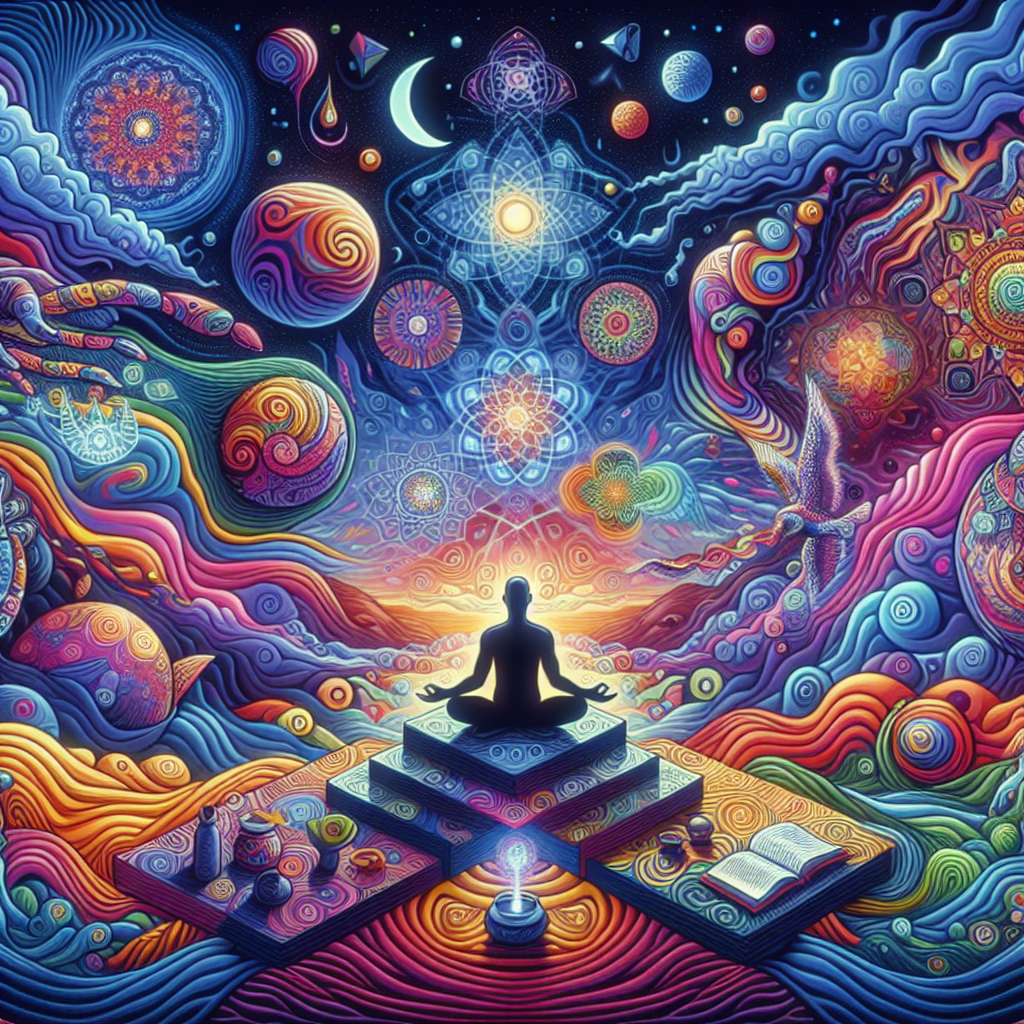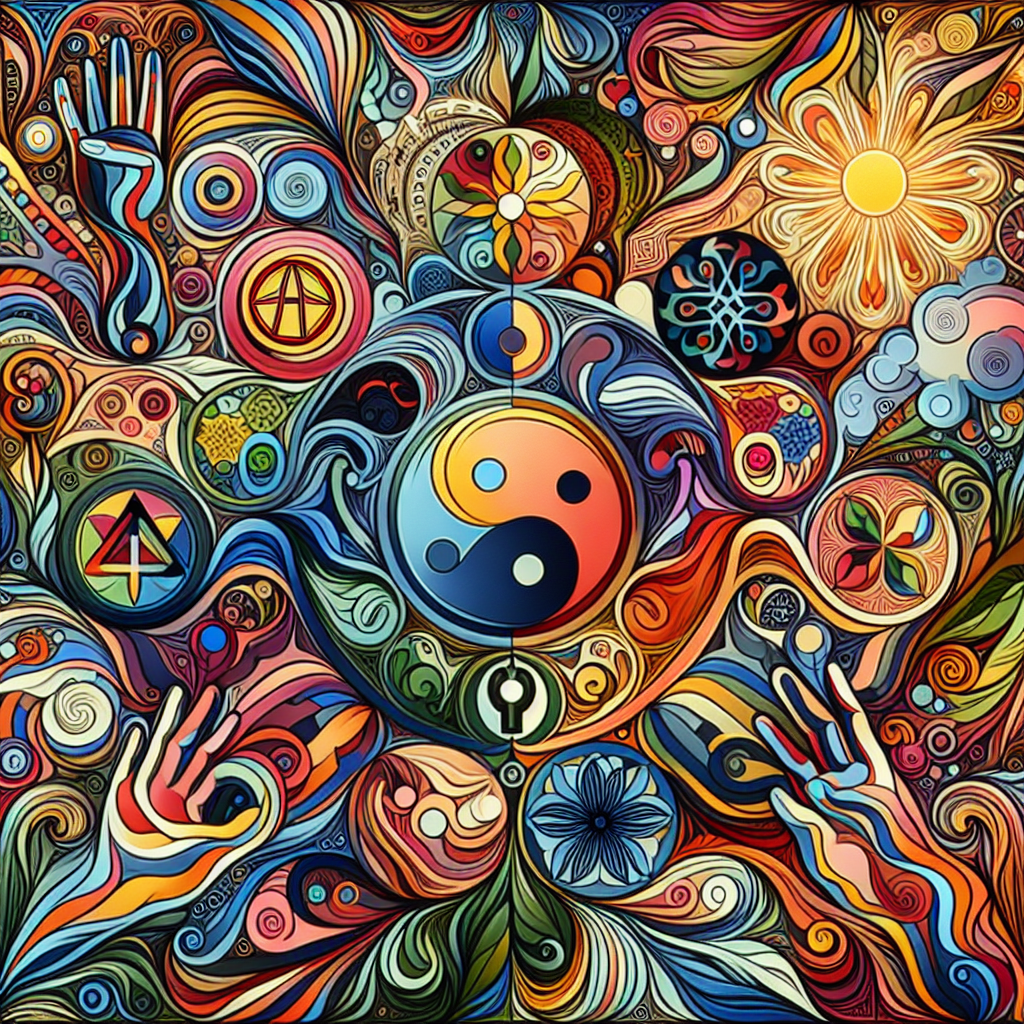The Role of Psychedelics in Holistic Well-Being

Discover more about the role of psychedelics in holistic well-being. Uncover the potential benefits and transformative effects these substances can have on your overall health and wellness. Visit My Vibrant Vitality to learn more.
Exploring the Impact of Psychedelics on Holistic Well-Being
The role of psychedelics in holistic well-being is a topic that has been gaining significant attention in recent years. As the stigma surrounding these substances begins to fade, more and more people are exploring their potential benefits. This shift in perception is largely due to a growing body of research suggesting that psychedelics, when used responsibly and under the guidance of a trained professional, can have profound effects on mental health and overall well-being.
Psychedelics, such as psilocybin (found in magic mushrooms), LSD, and ayahuasca, have been used for centuries in various cultures for spiritual and healing purposes. These substances are known for their ability to induce altered states of consciousness, often characterized by intense emotional experiences and vivid hallucinations. However, their potential extends far beyond these immediate effects.
Recent studies have shown that psychedelics can have long-lasting positive impacts on mental health. For instance, research conducted at Johns Hopkins University found that a single dose of psilocybin can significantly reduce symptoms of depression and anxiety in individuals with life-threatening cancer. Similarly, a study published in the Journal of Psychopharmacology reported that ayahuasca could help reduce symptoms of treatment-resistant depression.
Moreover, psychedelics have been found to promote neuroplasticity – the brain’s ability to form new neural connections. This can lead to improved cognitive flexibility, which is crucial for mental health as it allows individuals to adapt more effectively to stress and change. This is particularly relevant in our fast-paced, ever-changing modern world, where mental agility is increasingly important for maintaining well-being.
In addition to their potential mental health benefits, psychedelics can also play a role in spiritual growth and self-discovery. Many people who use these substances report profound experiences of self-transcendence and interconnectedness, which can lead to increased self-awareness and personal growth. These experiences can also foster a greater sense of purpose and meaning in life, which are key components of holistic well-being.
However, it’s important to note that the use of psychedelics is not without risks. These substances can induce intense and sometimes distressing experiences, and their use can lead to psychological dependence. Therefore, they should always be used responsibly, under the guidance of a trained professional, and in a safe and supportive environment.
Furthermore, while the potential benefits of psychedelics are promising, more research is needed to fully understand their effects and to develop safe and effective therapeutic protocols. It’s also crucial to remember that while psychedelics can be a powerful tool for enhancing well-being, they are not a panacea. Holistic well-being involves a balanced approach to health, incorporating physical, mental, and spiritual aspects. Psychedelics can be part of this approach, but they should be used in conjunction with other strategies, such as regular exercise, a healthy diet, mindfulness practices, and social connection.
In conclusion, the role of psychedelics in holistic well-being is a fascinating and complex topic. These substances have the potential to significantly enhance mental health, promote personal growth, and foster a sense of purpose and meaning. However, their use should always be approached with caution and respect. As research continues to shed light on the potential benefits and risks of psychedelics, it’s clear that these substances could play a significant role in the future of holistic health and well-being.
The Role of Psychedelics in Enhancing Mind-Body Connection

The role of psychedelics in holistic well-being is a topic that has been gaining significant attention in recent years. This is largely due to a growing body of research suggesting that these substances, when used responsibly and under the guidance of a trained professional, can have profound effects on mental health and overall well-being. One of the most intriguing aspects of this research is the potential role of psychedelics in enhancing the mind-body connection, a fundamental aspect of holistic health.
The mind-body connection refers to the relationship between our mental and physical health. It’s the idea that our thoughts, feelings, beliefs, and attitudes can positively or negatively affect our biological functioning. Conversely, what we do with our physical body—what we eat, how much we exercise, even our posture—can impact our mental state. This connection is a central tenet of holistic health, which emphasizes the importance of considering the whole person—body, mind, spirit, and emotions—in the quest for optimal health and wellness.
Psychedelics, including substances like psilocybin (found in magic mushrooms), LSD, and ayahuasca, have been found to significantly enhance this mind-body connection. They do this by altering perception and cognition, allowing users to experience a heightened sense of awareness and a deeper connection with their inner selves and the world around them. This can lead to profound insights and realizations that can have lasting positive effects on mental health and well-being.
For instance, many people who use psychedelics report experiencing a sense of unity or interconnectedness with all things, a feeling that can lead to a greater appreciation for life and a more compassionate outlook. This can have a profound impact on mental health, helping to alleviate symptoms of conditions like depression and anxiety. Moreover, this enhanced sense of connection can also lead to healthier behaviors and lifestyle choices, further promoting physical health and well-being.
In addition to these subjective experiences, there is also a growing body of scientific evidence supporting the role of psychedelics in enhancing the mind-body connection. Research has shown that these substances can stimulate neurogenesis (the growth of new neurons) and neuroplasticity (the brain’s ability to reorganize itself by forming new neural connections), leading to improved mental health and cognitive function.
Furthermore, studies have found that psychedelics can help to reduce inflammation and improve immune function, suggesting that they may also have direct physical health benefits. This is particularly significant given the increasing recognition of the role of chronic inflammation in a wide range of health conditions, from heart disease and cancer to depression and dementia.
In conclusion, while the use of psychedelics is not without risks and should always be undertaken with caution and under the guidance of a trained professional, the potential benefits for holistic well-being are significant. By enhancing the mind-body connection, these substances can help to promote a greater sense of self-awareness, improve mental and physical health, and foster a deeper appreciation for life. As such, they represent a promising area of research in the ongoing quest for holistic health and wellness.
Psychedelics and Their Potential in Holistic Healing Practices
Psychedelics, once relegated to the fringes of society, are now gaining recognition for their potential in holistic healing practices. These substances, which include LSD, psilocybin (magic mushrooms), and ayahuasca, have been used for centuries in various cultures for spiritual and therapeutic purposes. Today, they are being reevaluated by the scientific community for their potential to promote holistic well-being.
Psychedelics are known for their ability to induce profound changes in consciousness, often leading to transformative experiences. These experiences can provide individuals with a fresh perspective on their lives, helping them to confront and resolve deep-seated emotional issues. This is particularly relevant in the context of mental health, where traditional treatments often fail to address the root causes of disorders.
In recent years, a growing body of research has begun to shed light on the therapeutic potential of psychedelics. Studies have shown that these substances can be effective in treating a range of mental health conditions, including depression, anxiety, and post-traumatic stress disorder (PTSD). Moreover, they appear to work in a fundamentally different way than conventional psychiatric drugs. Rather than simply suppressing symptoms, psychedelics seem to facilitate a process of psychological healing and growth.
One of the key ways in which psychedelics promote holistic well-being is by fostering a sense of connectedness. Users often report feeling a deep connection to others, to nature, and to the universe as a whole. This sense of interconnectedness can help to alleviate feelings of isolation and alienation, which are common in our modern, individualistic society. Furthermore, it can foster a greater sense of empathy and compassion, both for oneself and for others.
Another important aspect of the psychedelic experience is its potential to induce a state of ego dissolution. This is a temporary loss of one’s sense of self, which can lead to a profound shift in perspective. Many people who undergo this experience report a decrease in self-centeredness and a greater appreciation for the interconnectedness of all things. This shift in perspective can have lasting positive effects on mental health and overall well-being.
Psychedelics also have the potential to facilitate personal growth and self-discovery. The intense introspection that often accompanies a psychedelic experience can lead to significant insights about oneself and one’s place in the world. These insights can, in turn, lead to positive changes in behavior and lifestyle.
Despite the promising potential of psychedelics in holistic healing practices, it’s important to note that these substances are not a panacea. They should be used responsibly and under the guidance of a trained professional. Furthermore, more research is needed to fully understand their effects and to develop safe and effective therapeutic protocols.
In conclusion, psychedelics offer a promising avenue for promoting holistic well-being. Their ability to induce transformative experiences, foster a sense of connectedness, and facilitate personal growth makes them a valuable tool in the realm of mental health. As our understanding of these substances continues to grow, it’s likely that they will play an increasingly important role in holistic healing practices.